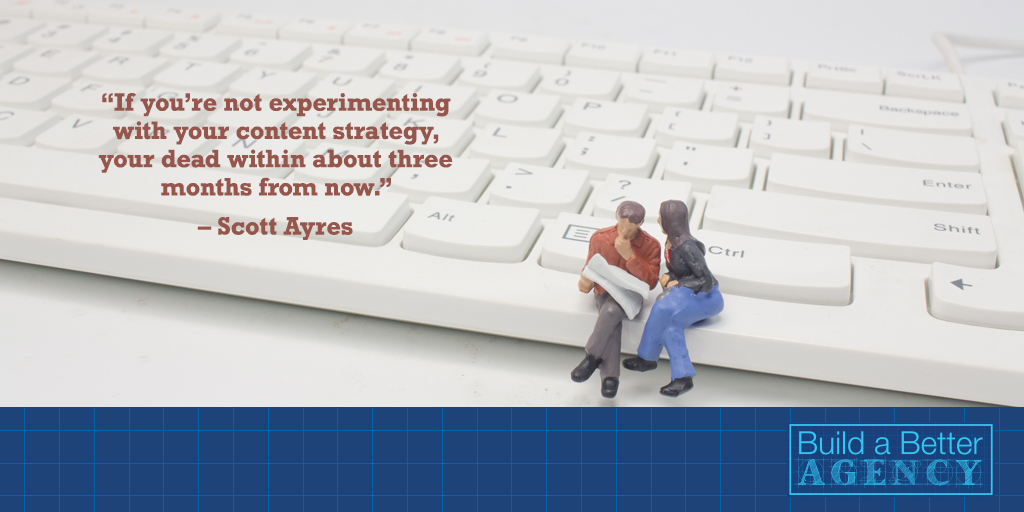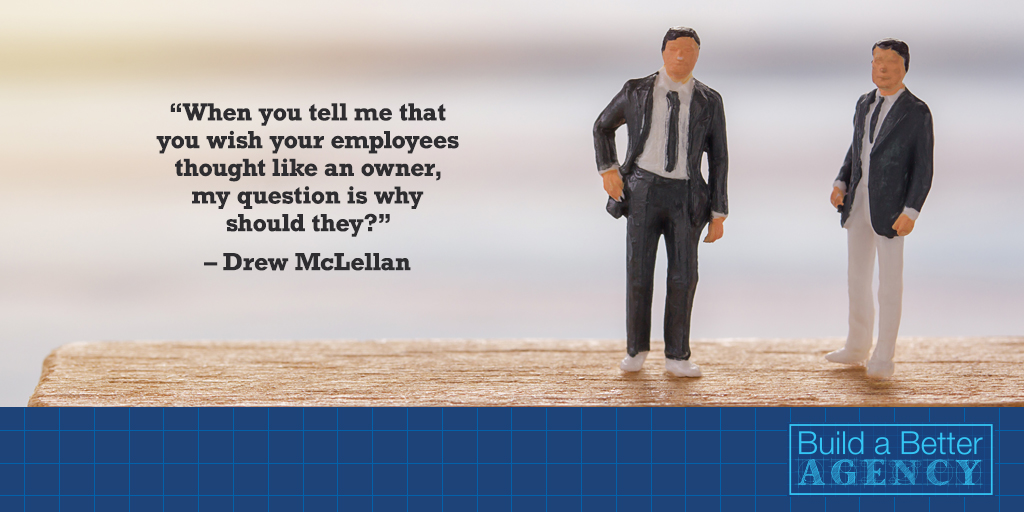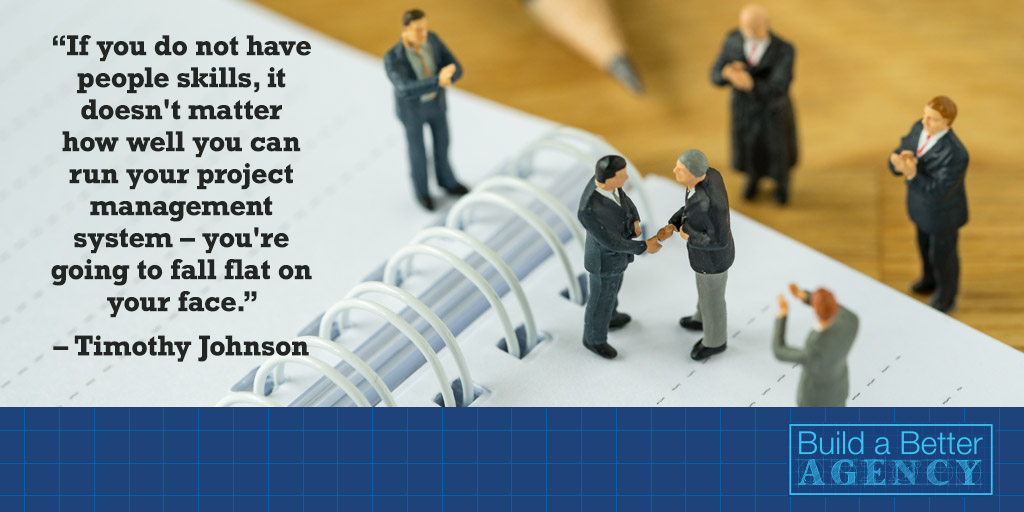Staying on top of the social media landscape and what it means in terms of going from engagement with fans to ultimately generating new opportunities and sales is one of those ongoing tasks in agency life. Algorithms are always evolving, so what got you reach last year – or even last month – might not get you the same reach today.
We are creating social content for clients every day. Add to that the thought leadership we want to develop for our agency – and that’s a lot of social interaction to manage!
On this episode, we dig into the current data. What’s happening on Facebook, LinkedIn, Instagram and, oh, yeah – Twitter.
How do we engage on these social platforms in smart and effective ways? My guest is Scott Ayres of Agorapulse. His Social Media Lab (a literal lab and also a podcast he hosts) digs into this question with gathered and analyzed data to back up any answers given.
Scott has the awesome title of Content Scientist at Agorapulse. He takes what we all believe to be best practices or questions we have around engagement or audience activity or behavior, and he looks for data points that will help us make better choices in terms of how we use these social channels for our agency and clients’ benefit.

What You Will Learn in This Episode:
- What social metrics to measure, and why
- Why local business pages are still thriving on Facebook
- How people are using hashtags as “Google”
- Whether or not emoji usage changes engagement
- Why you might want to post on social networks before or after peak
- How social media channels are beginning to segment in a good way
- Why LinkedIn text-only posts perform better than FB text-only posts
- Data around the resurgence of the Twitter chat
Ways to Contact Scott Ayres:
- Website: agorapulse.com
- LinkedIn: https://www.linkedin.com/in/scottwayneayres/
This is one of those episodes that proves that you don’t know what you don’t know. We’re tackling the subject of health insurance – how to manage costs as an employer since it is such a big-ticket cost for most agencies.
I’ve been an agency owner for the past 25 years or so, and health insurance is something I want to offer because I value my team and want to provide a generous benefit package. But when renewal time comes around, I’m always wondering what kind of increase is coming. Like most of you, it’s usually in the double digits and super painful. Someone (me or my employees) has to endure that increase or we have to increase the deductible or reduce features.
One thing I do know: For all of us, healthcare costs typically one of our biggest expenses and feels completely out of our control.
I wanted to tap into the wisdom of Allison De Paoli, who works with businesses to get more out of every healthcare insurance dollar. She offered some incredible insight on managing the costs, increase the benefits to your team and protect yourself when it comes to renewals.
A veteran of the insurance and benefits industry, Allison and her firm are members of Next Generation Benefits Network (NBN). NBN is a national alliance of elite independent benefits firms that are successfully challenging the healthcare status quo to improve benefits for employees, while reducing the costs for employers.

What You Will Learn in This Episode:
- Creative ways to manage your healthcare line item
- The difference between a level-funded plan and a standard premium plan
- Cost savings and other benefits of telehealth programs
- Finding a benefits advisor who will truly advocate for your best interests
- How to make sure employees of every age are getting the right kind of medical care
- Hidden drivers of healthcare costs
- The role and surprisingly affordable cost of a direct primary care doctor
- Why self-funded plans are not as scary as you might think
- How a health savings account can act as a retirement savings vehicle
Ways to Contact Allison De Paoli:
- Website: allisondepaoli.com/build/
- Book: https://amzn.to/2SYJWyM
- LinkedIn: https://www.linkedin.com/in/allison-de-paoli-b48825/
When I talk with agency owners, there’s one topic that often comes up in conversation. They say, “I wish my employees would think and act more like owners!” And my question back is, “why would they – they aren’t owners.”
Think about it. As the agency owner, you run the business, and you understand clearly what’s at stake every month. You stand to win or lose something each month when you make or don’t make your adjusted gross income (AGI), and the agency’s performance has a direct impact on your success. If the agency doesn’t do well – you’re the one who does not get a paycheck. But they do.
On the flip side, when the agency does very well, you reap the benefits of that windfall. You might pay out bonuses to your team but rarely do agency owners explain where the bonus came from or what was done to earn it.
Without similar incentives to meet targets, why would the staff feel a sense of ownership that drives their thoughts and actions?
This episode of Build a Better Agency is a solocast – and on it, I walk you through the AMI bonus programs that is designed to teach your team agency math (how we make and lose money) and create incentives so that they do start thinking and acting like an owner.
Ideally, a bonus program educates your team to think like owners, helps with retaining your best people, and shares the spoils from a good year. It also eliminates the obligatory year-end bonus that is not tied to anything but the calendar. As you know, if you give away a bonus a couple years in a row – without tying it to performance metrics, it becomes an entitlement.
Walk through the actual program with me on this episode and be sure to download the PDF so it’s easier to follow along.

What You Will Learn on This Episode:
- How to incentivize employees to think like owners
- Why automatic raises might start to backfire
- Why you should divide quarterly bonus funds evenly
- How to tell your team the story of why you did or did not hit your AGI target
- How to be reasonably generous and not ridiculously generous with bonus programs
- How to adjust AGI goals based on what happened in the previous quarter
- Why a bonus program is a good retention tool
- How to build behavioral incentives (continuing ed, time sheets) into your bonus program
- Why a bonus program can replace conversations about raises
Drew McLellan is the CEO at Agency Management Institute. He has also owned and operated his own agency since 1995 and is still actively running the agency today. Drew’s unique vantage point as being both an agency owner and working with 250+ small- to mid-size agencies throughout the year gives him a unique perspective on running an agency today.
AMI works with agency owners by:
- Leading agency owner peer groups
- Offering workshops for owners and their leadership teams
- Offering AE Bootcamps
- Conducting individual agency owner coaching
- Doing on-site consulting
- Offering online courses in agency new business and account service
Because he works with those 250+ agencies every year — Drew has the unique opportunity to see the patterns and the habits (both good and bad) that happen over and over again. He has also written two books and been featured in The New York Times, Forbes, Entrepreneur Magazine, and Fortune Small Business. The Wall Street Journal called his blog “One of 10 blogs every entrepreneur should read.”
Ways to contact Drew McLellan:
- Email: drew@agencymanagementinstitute.com
- LinkedIn: www.linkedin.com/in/drewmclellan
Resources:
Agencies are creative spaces. Especially as owners, we may bristle at the thought of being managed. But as your agency grows, there a definite need for systems and processes that ensure that things get done on time, on budget, and as promised.
I understand that even as the owner I get managed in order to keep tasks and projects on track. As agencies grow and need more structured management of tasks and processes and eventually, a full-time project manager. I did a solocast on the role of the traffic manager, if you’d find that useful.
But on this episode of Build A Better Agency, I have Timothy Johnson as my guest who is a seasoned project manager for hire and a professor of project management at Drake University. Tim also has been known to wear a pink bunny suit for reasons I may or may not be at liberty to discuss.
Bunny suit aside, Tim knows a thing or two about getting down to business. We talk about the needs of project managers, agency owners, and the agency staff. Often project managers feel like the odd person out, especially in the agency world. But it doesn’t have to be that way.
Project management is necessary, but it is not an evil. Tim is the perfect guest to help us really understand the ins and outs of project management, and maybe even getting a little excited about upping your PM game.
Tim has successfully led many high-end projects and programs, serving as both a project management consultant as well as a business analyst consultant across the U.S. He is the author of Race Through the Forest and other project management books. Timothy believes in delivering value, completing the deliverable, seizing the accomplishment, and getting out.

What You Will Learn in This Episode:
- Working under the triple constraints: on time, on budget, and delivered as promised
- Components of a S.H.A.R.P. report
- How Agile is so useful in scaling the management to the size of the project
- The communication and other skills to look for in a good project manager
- How creating quick wins can create buy-in around new process frameworks
- Why you should avoid the phrases “we need” or “we have a lack of”
- How to ask for project management to share stories in the interview
- Why agency owners need to hire people who can manage them
- How to define the specific requirements of what done looks like
- How to give project managers time to find their way in a new agency setting
Ways to Contact Tim Johnson:
- Race Through the Forest Book: https://amzn.to/2QNj9Yx
- Website: https://carpefactum.typepad.com/